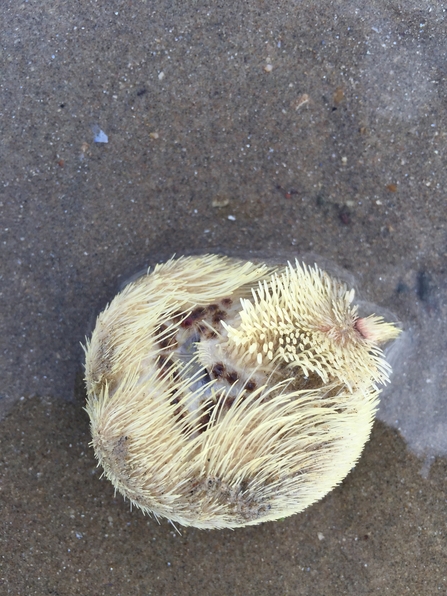Health benefits ...
Changing with each and every tide you, should always expect the unexpected especially at this time of year when persistent storms have pushed all sorts of treasures onto the beach. Whilst stormy seas guarantee a good selection of natural and man-made goodies, brisk sea winds also have proven health benefits. Sea air accelerates our body’s ability to absorb oxygen and balance serotonin, a chemical linked with mood and stress, making us feel more energised. At a time of year when we’re all looking for a fresh start, beachcombing is certainly a winter activity to be recommended.
Game of Cluedo ...
The term 'beachcombing' first appeared in print in Hermann Melville’s Omoo, to describe convicts and absconded whaleboat men living off flotsam and jetsam washed up on South Pacific shores. Today, it more widely used to describe the recreational activity of looking for curiosities washed up on beaches. To me, beachcombing is just a good old game of playing detective, where those taking part set out to collect evidence of our weird and wonderful underwater wildlife and the parts they play in the mysteries taking place beneath our seas.
Seashore Winter Wandering!
© NWWT Nia Haf Jones
Barnacles © NWWT

Sea potato - this incredible little creature is related to sea urchins and starfish © NWWT
Look out for ...
Watch out for eggcases, sea-wash balls and all sorts of different shells. Look carefully on stranded seaweeds for creatures such as the sea mat or spiral worms. The sea-mouse – a worm with iridescent fur – often washes up after wintery storms. After a series of big storms, evidence of far-flung lands can also be found! Tropical sea beans (seed pods) of vine plants are pushed out of the Atlantic, into the Irish Sea and eventually onto the beaches – rare but wonderful finds which help prove that our seas are all connected.
The few days following a storm are best for beachcombing – so fill up your flask and don your bobble hat, because it truly is a good time to get out and about on the coast! Just make sure you keep an eye on the tide and take particular care if it's stormy.
Tell us what you find @LivingSeasWales on Facebook or Twitter!

